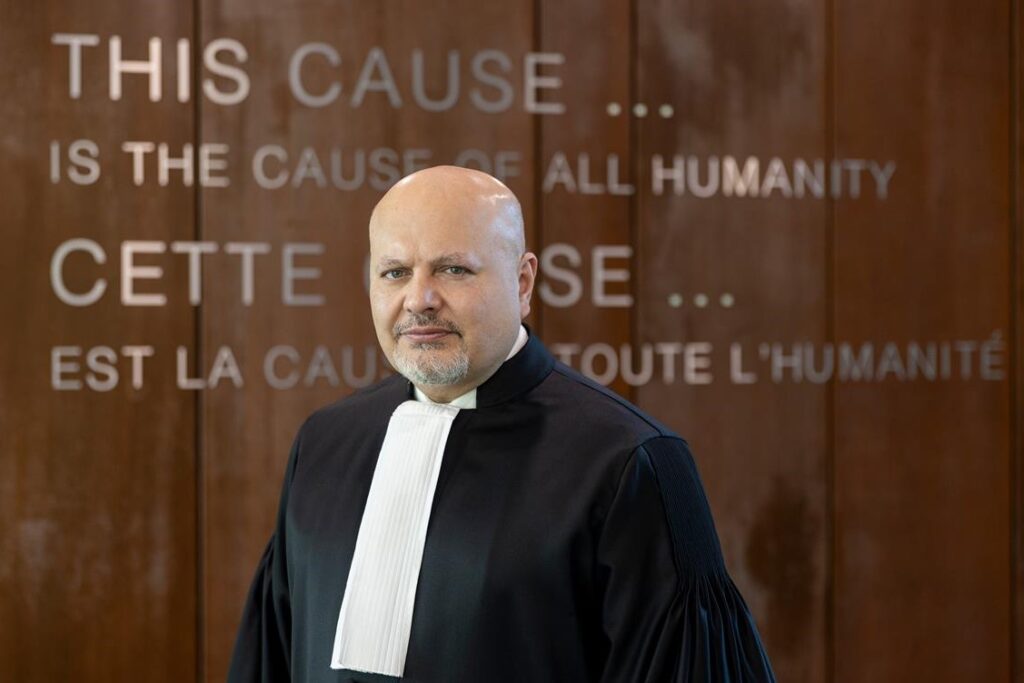The prosecutor of the International Criminal Court (ICC) in The Hague has applied for arrest warrants for three current and former South Ossetian officials in connection with the 2008 August War, including opposition presidential candidate David Sanakoyev.
ICC Prosecutor Karim Khan filed the application on Thursday.
The request comes almost 14 years after the 2008 August War. The ICC launched the investigation into war crimes committed from 1 July–10 October 2008 in January 2016.
The three men named were Mikhail Mindzaev, who was the Minister of Internal Affairs of the South Ossetia from 2005–2008, Gamlet Guchmazov, who led a detention facility at the time and David Sanakoyev, who was the Presidential Representative for Human Rights of South Ossetia in 2008.
Sanakoyev, a sitting MP in South Ossetia, currently leads the opposition Nykhas Party and is running in the presidential elections in South Ossetia scheduled for 10 April.
Khan said there was sufficient evidence that the three men had committed acts of illegal detention, torture, inhuman treatment, violation of personal dignity, hostage-taking, and illegal transfers of people.
Sanakoyev remained defiant following the announcement, dismissing the application as an attempt by the West to punish Russia following their invasion of Ukraine.
He asked why the Prosecutor had not taken into consideration the results of the EU’s fact-finding mission led by Swiss diplomat Heidi Tagliavini following the war.
The ‘Tagliavini Report’ found that the ‘beginning of the large-scale armed conflict’ in 2008 was the shelling of the South Ossetian capital Tskhinvali on the night of 7–8 August by Georgian armed forces’, while noting it was ‘only the culminating point of a long period of increasing tensions, provocations and incidents’.
‘None of those who made the decision to attack South Ossetia and carried out these orders have been punished’, Sanakoyev was quoted by South Ossetian state news agency RES as saying.
However, the Tagliavini Report, as well as a subsequent ruling by the European Court of Human Rights also noted violations of international law by South Ossetian forces, including the ethnic cleansing of tens of thousands of ethnic-Georgians living in South Ossetia.
ICC Prosecutor Karim Khan also said the investigation believed that Russian Major General Vyacheslav Borisov, who was Deputy Commander of the Russian Airborne Forces during the war, ‘intentionally contributed to the execution of some of these crimes’. Borisov has since passed away.
The ICC began operating in 2002 to prosecute genocide, crimes against humanity, war crimes, and the crime of aggression. It relies on other states to arrest individuals it indicts.
‘Another victory’
The Georgian Government as well as the largest opposition party, the United National Movement (UNM), both hailed the decision while accusing each other of manipulating the 2008 war.
‘The Government of Georgia will continue to work actively with the Hague Tribunal to bring to justice all other crimes committed against the people of Georgia’, the Georgian Justice Minister said in a statement.
Georgian Dream’s parliamentary leader, Mamuka Mdinaradze, wrote on Facebook that this was ‘Georgia's most important success in the international legal arena’.
‘In the wake of Russia's open aggression, the fifth column continues to fight against Georgia, its government, peace and national interests, but to no avail!’, Mdinaradze wrote, referring to the opposition.
Levan Bedzeashvili, a prominent member of the UNM, claimed the decision ‘put an end to the speculations and manipulations of Georgian Dream, such as that Georgia started the war; the Georgian side used cluster bombs; [calling us] War Party and so on’.
For ease of reading, we choose not to use qualifiers such as ‘de facto’, ‘unrecognised’, or ‘partially recognised’ when discussing institutions or political positions within Abkhazia, Nagorno-Karabakh, and South Ossetia. This does not imply a position on their status.




 11 March 2022
11 March 2022



